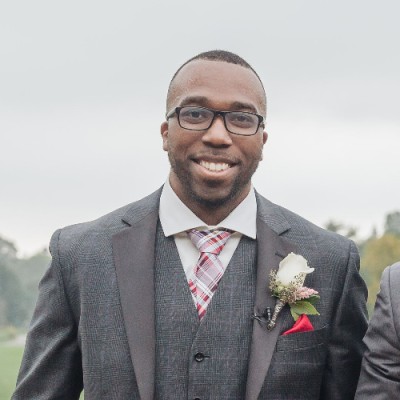ALUMNUS' STRONG VOLUNTEER SKILLS ROOTED IN TRENT EXPERIENCE
Roderic Southwell ’09 says organizing in a grassroots way and being resourceful stemmed from his 2013 Trent Black History Month involvement
February 25, 2022
Reflecting on the many volunteer-driven initiatives he has been involved with, Trent alumnus Roderic Southwell ’09 is quick to give credit where it is due.

“At Trent I learned how to organize in a grassroots way and to be resourceful,” says Mr. Southwell, who graduated with his BA in Psychology before returning a few years later to complete the Bachelor of Business Administration program.
Mr. Southwell points to an ambitious grassroots Trent-Durham student celebration of black history held back in 2013 as a prime example of how he was empowered to work in “a collective way that not only made something special happen but also helped me form some great bonds with others.”
“One of my professors, who brought together the event, noticed me in the hall, pulled me aside and said ‘Hey, do you want to be a part of this?’ You don’t forget people like that, because they see you when you think you’re invisible.”
Now a student conduct officer with Seneca College, Mr. Southwell’s resumé
is highlighted by a number of past and current volunteer pursuits: organizing Black History Months events for Ajax-based Cultural Expressions Inc., serving as youth education officer for the Antigua and Barbuda Association of Toronto, and working the phones as a crisis intervention worker for Distress Centres of Toronto to name a few.
“Volunteering has given me a great foundation in understanding people,” says Mr. Southwell, noting that this empathy has helped him greatly at Seneca as he investigates issues around student conduct, academic improprieties and cyber security breaches.
“One of the hallmarks of the many events I’ve been involved with is bringing in people from different groups and tying them together to work on a common goal. I can be a little idealistic but the work has grounded me a lot. I’ve come to realize the limitations of various institutions and that has given me a greater insight into how things work. I’ve become more of a critical thinker in that sense.”
Because his Black History Month-related work was so extensive, it remains close to Southwell’s heart. That said, he notes a 28-day time frame put aside to bring awareness to many issues is an unrealistic objective.
“It (Black History Month) is meant to inform. It’s meant to invoke a sense of pride. It’s meant to reduce racism. That’s a lot. Thinking about the origins of what it was intended to be, it has done its job, but we’ve put a lot of expectations on the month as a society, and I don’t think it can fulfill all the expectations. We’re in a bit more of a polarized time now. It’s going to take more than a celebratory month to fix that.”
Looking back on his experiences, he sees how Black History Month has impacted society.
“I wasn’t taught black history. I was taught the history of the Caribbean. I moved to Canada and I learned about the First World War and the Second World War… a lot of Canadian and European history. We kind of skipped over the unpleasant parts. Black History Month helps to inform you and give you a sense of pride in understanding your own culture. Moving forward, the question becomes how do we not repeat the same mistakes of the past.”
Meanwhile, if you’ve guessed that Southwell is looking towards future opportunities to volunteer, you’ve guessed right.
“I know the skills and the knowledge that I’ve attained and developed over the years could be a help to an organization in the future. When the time is right, I’ll be there.”